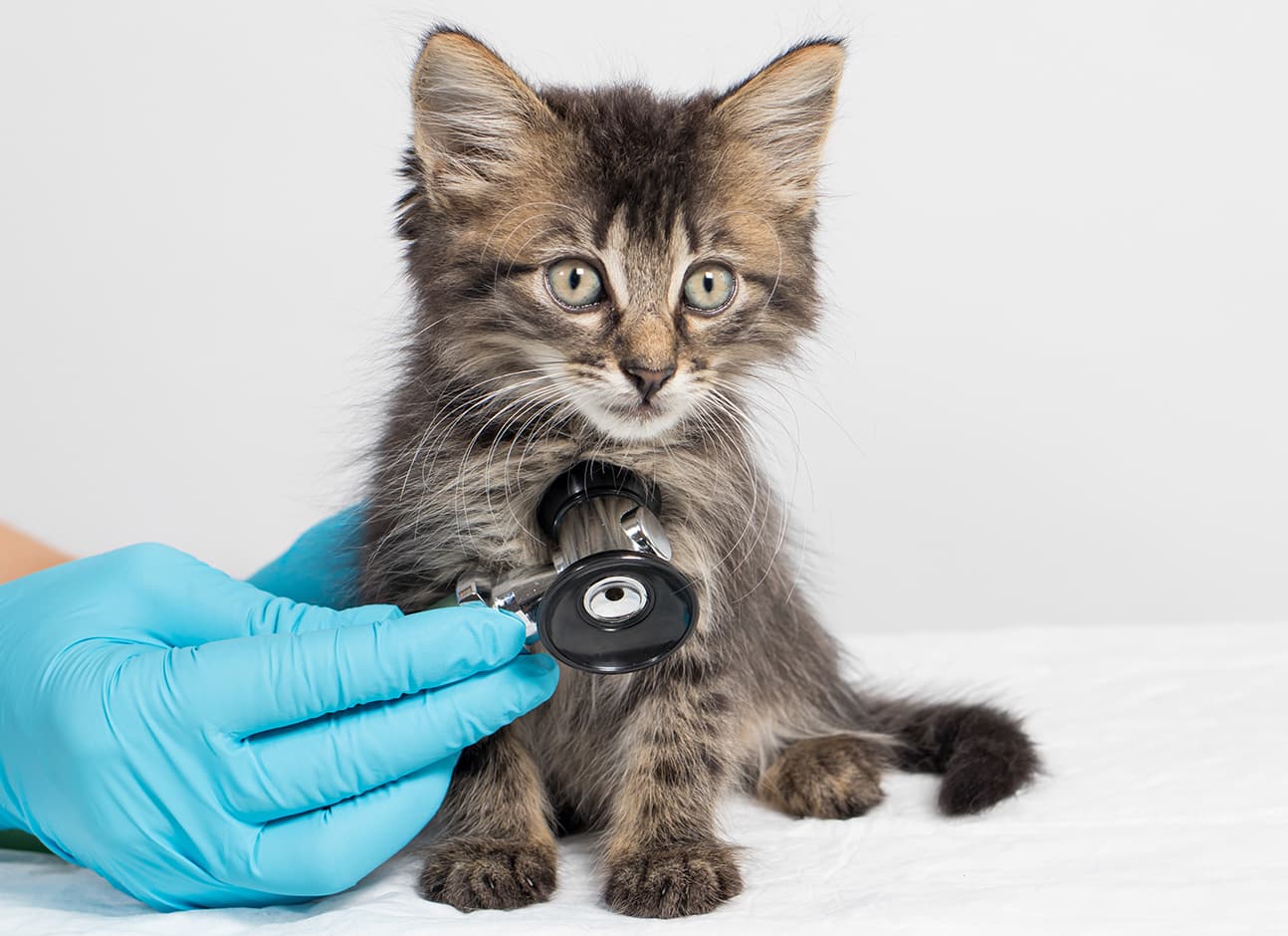Although cats do cough like dogs and other animals, coughs are relatively uncommon among the feline population. Cats usually cough in response to foreign matter in their respiratory system, an inflamed or irritated mucous membrane, or even due to the buildup of mucus.
Since cats do not cough that often, coughing is usually indicative of an underlying condition. Parasitic worms like heartworm, allergies, a type of bronchitis, or a respiratory tract disease are some factors that result in feline coughing. Additionally, chest tumors and certain liquids or gases can also cause your cat to cough.
Diagnosis of feline cough depends on the severity of the cough. If your cat’s cough is not that severe, the initial examination may be simpler as it could be a result of some kind of respiratory infection. However, if your pet has severe, repetitive coughs, your veterinarian may perform an extensive examination including (but not limited to) several blood tests, heartworm antigen tests, endoscopic examination, and x-rays. They may also analyse your cat’s medical history, home environment, and may require other details in order to make a definitive diagnosis.
As with the case of dogs, feline coughs are treated based on the cause(s). In milder cases of cough, your cat may be required to take decongestant medicines. But a course of antibiotics will be needed in more severe cases. It is important to continue to give your cat the antibiotic medication even if they get better, until the course has been completed. Anti-inflammatory medicines are prescribed to treat allergy-related coughs. You must not wait for the cough to get more severe as chronic feline cough can cause irreversible, permanent damage to the mucous membrane surfaces on the lungs. You can ask your veterinarian about the ways in which you can help your cat manage their cough and the best ways to care for them as they recover.
